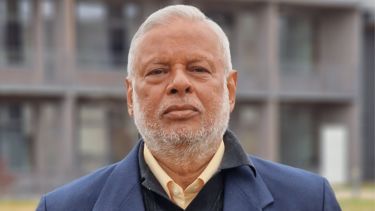Webinar: City as the Southern Question - Ranabir Samaddar

Event details
This event has taken place.
Description
"MRG Webinar Series 2024/25 - Debordering Migration Studies"
City as the Southern Question
Professor Ranabir Samaddar, Calcutta Research Group, Kolkata, India
It is no accident that of the twenty largest (most populous) cities of the world, seventeen are from the non-Western world. The point to note is that these are “Southern” global cities. These cities are global not because they have attained a capacity to reach out seamlessly to the globe. They are contentious places, and this contentious nature is formed through decades of attritions, wars, conflicts, riots, violent forms of claim makings, and zoning practices at times of the recent past, at times of colonial origin. The Southern Question is one of relations: relation between capital and peasantry, capital and land ownership, peasantry and land ownership, corporate capital and capital formation in medium and small forms, in-migration of destitute labour from even poorer regions and beyond and out-migration of labour in search of work, integrated society and disintegrated life and economy, formal economy and informal labour processes, and finally an elect nation and its dis/less-privileged part – in short relations of power. But also, lest we should forget, “Southern” cities carry strong imprints of wars, conflicts, and contentious claim makings – and in that sense a permanently unstable relation between war and peace, stability and instability, and order and violence. The relations take a geographical form as they exhibit a range of political, economic, and cultural dimensions. These relations exhibit themselves within the Southern city.
The “Southern Question” in many ways makes the city of the South a counter-figure or if you like counter-power to the power of the North. Yet these cities whether on the Mediterranean or on the Arab Sea and Bay of Bengal, or on the Aegean Sea, inhere the same North-South relationship - in short, the “Southern Question”. The North can be found in the South as much as the South in the North. Cities represent this duality of the “Southern Question”. To disentangle the complications growing out of this duality is essential in order to think of urban justice that can be framed as an urban future desired by the lower classes of the city.
These developments have created a situation where it seems as if all the ills of the nation have been shunted to the city. The city is the congealed site of the phenomena of concentration of poverty, destruction of local medium and small capital, migrant labour, displacement, unmanageable demographic density, newer diseases, anarchic pattern of settlements, the chiaroscuro of legality and illegality, violence, and the scourges produced by logistical reorientations of the city. As if, this is the South; this is the “Southern Question” bypassed by modern liberal democracy. And exactly as had happened a few centuries back in the wake of the early capitalist urbanisation, such a situation is producing new politics of life.
